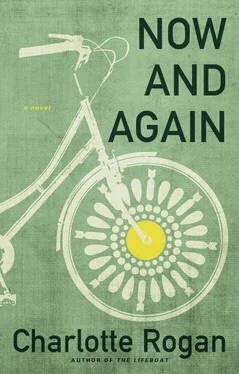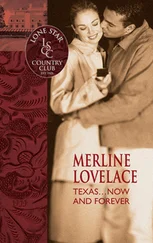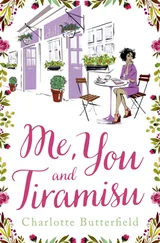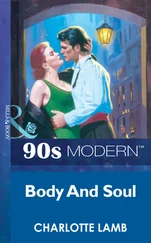“Sure,” said Lyle. “But what does that have to do with it?”
“Once you figure out what MacBride wants, you tell him how you can help him get it. You make him believe he can’t get it without you.”
“How do I do that?”
“The particular words aren’t important, but you have to make yourself seem indispensable to the operation at hand.”
It sounded very complicated to Lyle, and he almost gave up on the idea altogether. “Heck,” he said. “I’m happy where I am.”
“But underutilized,” said Jimmy. “Not to mention underpaid.”
When Lyle saw Jimmy in the break room the afternoon the monthly report was due, Jimmy winked at him and said, “It all boils down to tactics and execution.” Then he told Lyle that above everything else was strategy and goal-setting. “There are only a few real goal-setters in the world, and most of them are CEOs and generals. They set the agenda, and then it’s up to the rest of us to get things done. MacBride is in tactics, and you,” he said giving Lyle a poke in the chest, “you’re in execution.”
It sounded like a death sentence to Lyle, who had never asked himself any of the large questions Jimmy not only asked, but seemed to have an answer for. But once the idea of a promotion had occurred to him, it was like standing on a cliff looking down at a swimming hole. The only way to shut the cycle of indecision down was to jump.
Finally, Lyle could stand it no longer, and he made his way to MacBride’s office just so the imaginary harangue would stop. He reminded himself not to demand anything, only to ask politely, but first he washed his hands carefully with grease-cutting soap so he wouldn’t leave black smudges on any of the papers that always littered MacBride’s desk. He waited until most of the men had gone home for the day before knocking gently at the office door.
MacBride sat Lyle down and gave him his choice of a Dr Pepper or a Sprite. Then he went through the various job openings with him. It was a shock to Lyle to find out that all of the positions were paired with complex personality profiles. Managers were supposed to be highly self-reliant and strongly pragmatic by nature. They should emphasize realistic goals in the development of workable plans. They should be assertive and forceful and persistent in the face of frustration. None of the listed attributes were ones Lyle possessed, but Jimmy’s voice was in the back of his head, egging him on. “I think I can be indispensable to the accomplishment of your goals,” he told MacBride.
“And you are, Rayburn. You have a spotless record. On time every day. No accidents with the equipment.”
Lyle rubbed the place where the metal filings had gone in, but thought it better not to mention it.
“All this tells me that you’re right where you need to be,” said MacBride, who rambled on a little longer before telling Lyle he could take the rest of his Dr Pepper with him.
“He said I wasn’t a visionary,” Lyle told Jimmy the next day.
“That shows how much he knows,” scoffed Jimmy. “Being a visionary is only important for goal-setters and strategists.”
The next day Jimmy gave Lyle a dog-eared book. “This here is the bible on this sort of thing,” he said.
“What sort of thing?” asked Lyle.
“Getting what you want.”
“I thought it was about MacBride getting what he wants.”
“Jeezus, Lyle,” said Jimmy. “That’s only what you want MacBride to think.”
It was the first book Lyle had read in years. The table of contents wasn’t too bad — short phrases, one per line. But the rest of the book was a different story. Even though he read the first chapter over and over again, he couldn’t understand the point of it. The author told some amusing stories about gangsters who couldn’t see how all the terrible things they had done were wrong, but Lyle wasn’t a gangster. And he didn’t see what gangsters had to do with becoming a supervisor on the floor. The book said, The only reason you are not a rattlesnake is that your mother and father weren’t rattlesnakes. And it said a person usually had two reasons for doing something, one that sounds good and the real one. And it said to smile and talk about the other person’s interests and to let the boss think the idea of the promotion was his and also that it was Lyle’s job to keep MacBride from saying “no” because no was hard to overcome. Okay, Lyle told himself. I guess I can do that.
The next day he went back to MacBride and chatted with him about fishing and about MacBride’s grandson while MacBride showed him a few photographs he had taken at the lake. When the time seemed right, Lyle said, “About that promotion,” but MacBride, who had never been anything but friendly to Lyle, hardly looked at him as he said, “We’re in a holding pattern, Rayburn — especially considering the economy is in the tank. Not to mention that business with your wife.”
“What business?” asked Lyle.
“All that talk about how what we do here is harmful got some of the other employees upset, and now I hear she’s causing trouble up at the prison.”
“How is she causing trouble?” asked Lyle. Maggie had promised him that the prisoner records were only copies and no one knew she had taken them.
But MacBride just said, “That’s probably something you should ask her yourself.”
Lyle tried to find out what MacBride meant, but whenever he asked about work, Maggie said things were fine, and when he asked her about making a difference in the world, she said she wasn’t thinking about innocent prisoners or freaks of nature anymore. He wanted to believe her, but something about the way she was whacking at the lawn worried him.
“The trick is to get the clover without pulling up all of the grass,” Maggie told him.
“Wouldn’t it be easier just to poison it?”
“Easier for me,” said Maggie, “but lethal for the insects.”
Fall was coming, and soon Will would be back at school. The leaves on the Japanese maple were already tinged with orange, and the beautyberry bush was covered with fat purple berries. Maggie showed Lyle how to water the petunias she had planted in pots by the back door. “Just in case,” she said.
“Just in case of what?” Lyle wanted to know.
“Just in case I’m hit by a truck,” said Maggie. “Just in case I run off with the mailman.”
“The mailman?” asked Lyle.
“Remember what the pastor told us. One crazy thing, no questions asked.”
They had a good laugh, and then she showed him the drawer in the desk where she kept the passwords for the checking account and the health insurance card.
“Just in case you’re appointed ambassador to Japan?” asked Lyle.
“Yes,” said Maggie. “Just in case of that.” But Lyle could tell she wasn’t really listening. An army of sugar ants was making its way from the windowsill to a blob of goo that had been spilled by the kitchen sink. “Sugar is really bad for you,” said Maggie. “It’s worse for you than fat. And mostly it isn’t even sugar. It’s high fructose corn syrup, which is subsidized and overproduced, so they have to come up with more and more ways to use it. They put it in everything and then they make the portions bigger, which leads to obesity and diabetes. I don’t think any of us should eat it anymore.”
After dinner, Maggie sat at her desk to sort the mail while Will and Tula cleared the table and washed up. Lyle smiled to recall how he and Maggie had washed the dishes together all those years ago. He walked over to where she was bent over her papers in a warm pool of light from the desk lamp. He wanted to touch her that way again. He wanted to be young, with everything before him. He wanted to sit down beside her and ask her advice on how to handle MacBride, but when he stooped down to look over her shoulder, she said, “This is where I keep the checkbook, Lyle. Right here in the top drawer. And this is where I keep the stamps.”
Читать дальше












